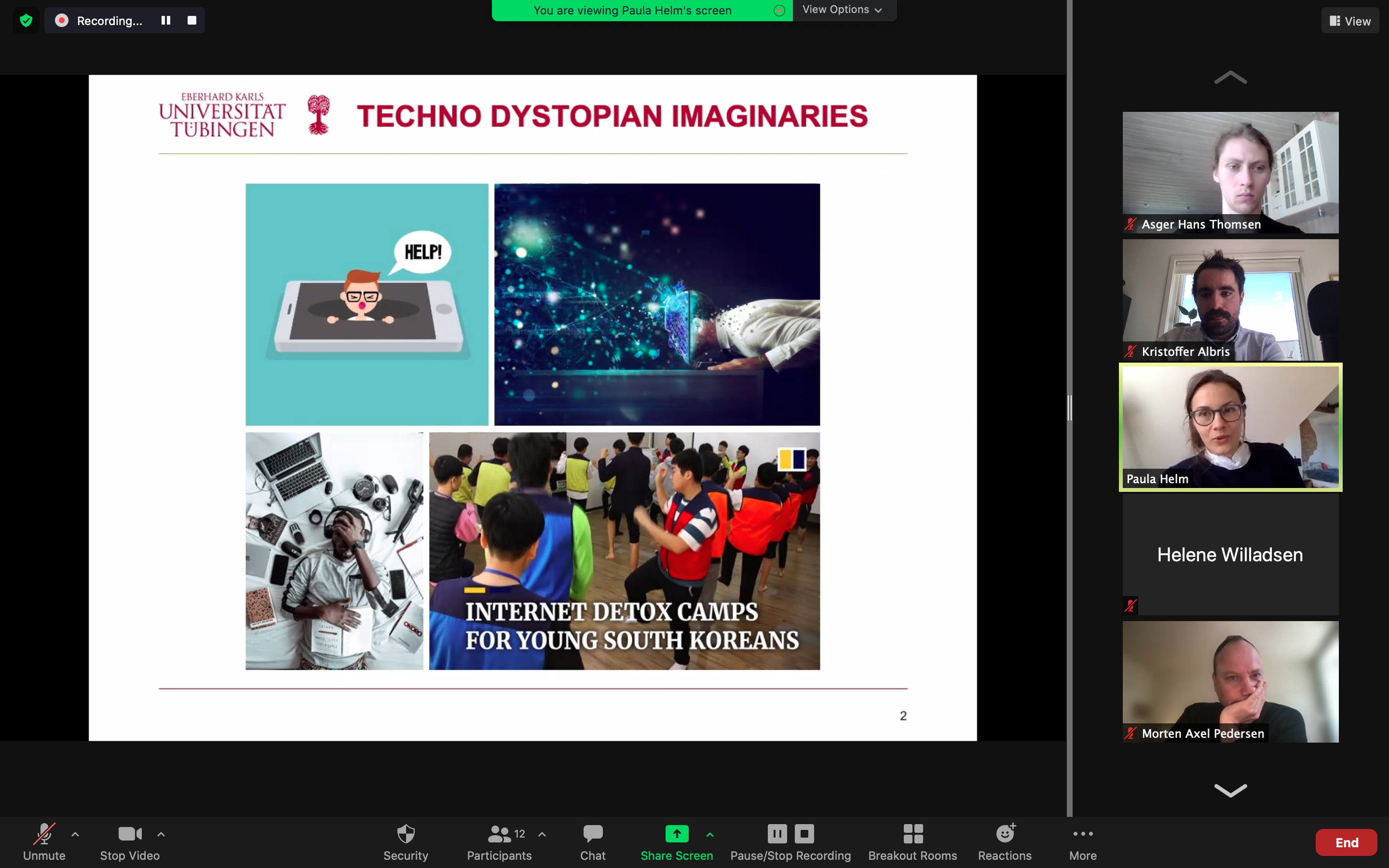23 April 2021
Paula Helm (Uni of Tübingen) on "Problematic use and addictive design"
On the 23rd of April, Paula Helm, post doc at the International Center for Ethics in the Sciences and Humanities (IZEW) at the University of Tübingen, gave a DISTRACT seminar talk entitled "Problematic use and addictive design – Towards distributed responsibility".
Abstract
Online manipulation, excessive gaming and porn consumption, loss of control over time on device, concentration disorders - all these problems are closely linked to the proliferation of information and communication technologies. The generic term for this has become "Problematic Internet Use" (PIU). PIU encompasses all kinds of "repeated impairing behaviours" in relation to the internet that lead to negative consequences in daily life. More recently, PIU has sparked debates in influential institutions such as the WHO, the American Psychiatric Association, and some federal departments of labour and health. At issue are questions such as: At what point should certain patterns be classified as pathogenic? How are these patterns to be dealt with: how are they to be treated? How to be avoided? Last but not least: Who has to bear the responsibility for this?
Two very different perspectives currently dominate these difficult debates. In psychiatric discourse, PIU is studied primarily at the level of the individual user, and it is at this level that solutions in the form of medication or behavioural therapy are explored (Spada 2014, Aboujaoude 2010). In contrast, work from fields such as critical computing, digital anthropology, and technology ethics suggests that the designs of many applications, as well as the utility functions they are intended to serve, are also problematic (Susser/Nissenbaum/Rössler 2019; Williams 2018; Dow Schüll 2012).
In my talk, I will think these two perspectives together. In doing so, I draw on work from the field of STS as well as on ideas and practices performed by recent media resistance movements. My goal is not only to capture the complex and relational structure of PIU, but also to move away from a one-sided understanding of responsibility. By combining a Neo Republican understanding of responsibility with a New Materialist one, I make clear why it would be fatal to limit ourselves to a one-sided understanding of responsibility either way. Rather, what we need in this context is a triangular understanding of responsibility. This triangle distributes responsibility between users, developers, and the technologies themselves.

